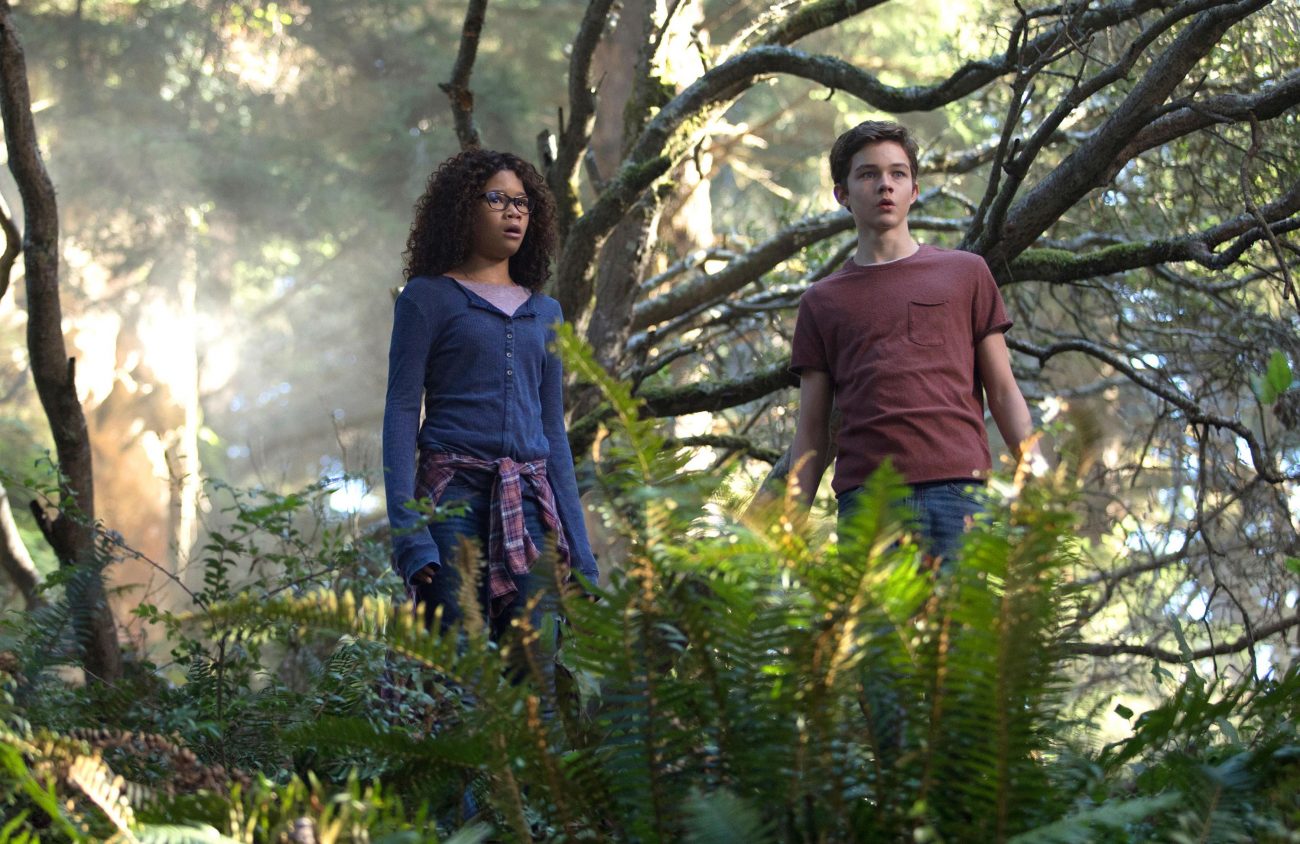It might be easier, for those of us who grew up loving Madeleine L’Engle’s A Wrinkle in Time, to view Ava DuVernay’s movie as less adaptation and more distillation. Key parts of the novel are there, but the essential weirdness of the book is missing, replaced with something unexpectedly gentle and inspiring.
This movie wears a heart on each sleeve — one is DuVernay’s, glittering and wise and focused on a long-neglected audience; the other, polished to a safe sort of colorful gleam, is Disney’s.
I would have liked a weirder Wrinkle, but I find it hard to argue too much with the one we got.
Leave your memory of the book at the theater door, and this is what you’ll find: a story that offers a stubborn, mistrustful, aching, much-needed heroine; that unabashedly presents itself as a guide for making the world better, one small act at a time; is fiercely interested in presenting a world free of stereotypes and gender norms; and that wants to remind you that love is never uncool.
Meg Murry (Storm Reid) misses her scientist father (Chris Pine), who vanished four years ago. Could he have left his perfect family? It almost doesn’t matter; what matters is how it feels. The rest of Meg’s family, including her preternaturally mature little brother, Charles Wallace (Deric McCabe), and her also-a-scientist mother (Gugu Mbatha-Raw, excellent but underused), are wonderful, but Meg hurts, a fact that should be apparent to anyone with eyes.
That hurt leaves her suspicious — of Calvin (Levi Miller), a classmate who’s sweetly interested in Meg, and of the strange women Charles Wallace keeps introducing her to. These are the Mrses — Mrs. Whatsit (Reese Witherspoon), Mrs. Who (Mindy Kaling) and Mrs. Which (Oprah Winfrey) — all glitter-lipsticked, definitely-not-human-beings who send Meg, Charles Wallace and Calvin across the universe in search of Mr. Murry.
Meg is no Alice in Wonderland, blithely accepting of all the weirdness she encounters. She doesn’t trust herself, doesn’t trust the Mrses and can’t fully fling herself into the adventure at hand. Her doubt makes her journey more difficult — but it doesn’t stop her.
You don’t have to have faith or trust the world, this story says, in order to have wild adventures. It’s OK to doubt and question, to be angry and skeptical. Not everyone is Lucy Pevensie, running wide-eyed off to tea with a faun. Some of us are Meg Murry, and some of us don’t have our balance yet.
Wrinkle isn’t so much about how the journey changes you as it is about how you can change yourself — and how that’s one small step that everyone is capable of taking. It doesn’t ask for perfection; it asks for acceptance.
The movie, like each of us, has its flaws. And maybe it should: Those flaws are a reminder that $100 million can’t buy perfection. It can, however, provide vision, and color and inclusiveness, and an intense curiosity as to what Ava DuVernay will do next.
